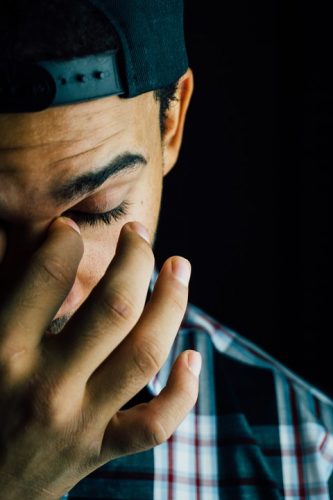
Source: maxpixel.net
“Someone with sex addiction isn’t just someone who loves sex. The main symptoms of sex addiction include a loss of control, failed attempts to stop unwanted sexual behavior, and a pattern of negative consequences from anxiety to depression and legal problems,” says therapist Dr. Joe Kort.
Sexual addiction and mental illnesses are both problems experienced by some people. First, sexual addiction contributes to the growth of mental health conditions, and second, mental illnesses take part in sexual addiction cases. Yet upon further studies, research information gathering, and clinical practices, it is likely proved that these two do not share the same connection.
But the questions remain, “How do these two issues contribute to a human developmental operation? Is there a relationship with each other?” In this article, the impacts and effects of sexual addiction in the development of mental illnesses will be discussed thoroughly, and vice versa.
Sexual Addiction Can Create A Mental Health Condition
Mental health issues such as anxiety, depression, eating disorders, and illegal substance abuse can emerge from the compulsive desire and engagement to sexual activities. It can be detrimental to one’s health and well-being. Excessive addiction can lead to anxiety and depression due to social withdrawal. No interest and pleasure in other social things is also an impact. Alteration of a reward system in the brain or a pathway, which is essential for understanding the effects of drugs, can occur which creates difficulty in striving for pleasure that does not involve sexual activities.
Some repercussions of being inclined to sexual participation are the loss of self-respect and respect for others, deficiency in self-control, and unhealthy relationships and ties. “Sex addicts are destroying their marriages, have lost jobs or created financial messes in their lives due to their compulsive behaviors,” says Alexandra Katehakis, Ph.D., clinical director. People with this condition favors sexual intimacy rather than a social and relational connection between their romantic partners, as their perspective concerning the issue of sex is being twisted and objectified.
Also, concerning the development of anxiety, random thoughts may circulate in one’s mind, such as being an unlovable person and a struggle with sexual stimulation. A person’s nervous system-generated stimuli are being dependent on sexual addiction, and battling the fight against unwanted thoughts increases anxiety and apprehension.
A wide range of mental health problems are being caused by sexual dependency, but some of them might be caused by other contributors. Nevertheless, it has the same repercussions.
Mental Illness Can Manifest As A Sexual Addiction Issue

Source: maxpixel.net
Alternatively, sexual addiction can also be contributed by mental state issues. It is possible that specific mental health problems can take a crucial role in the development of excessive sexual participation and sexual objectification amongst other people. Persons with mental illnesses are more likely vulnerable to sex addictions. Those with anxiety, depression and Attention Deficit Hyperactivity Disorder (ADHD) or Attention Deficit Disorder (ADD) are at high risk.
Engagement to sexual activities are being used to ease one’s anxiety or depression, and that makes a person gratify and crave for sexual participation to escape from the harsh reality that gives them fright and apprehension. Concerning this issue, sexual activities acted as a problem solver to lessen the effects of anxiety and depression to its victim, but only worsened into addiction. “The more shame is associated with sex, the more likely the person will act out on the behavior,” says Angela Skurtu, M.Ed., LMFT
Sexual addictions are also contributed by mental problems including Attention Deficit Hyperactivity Disorder (ADHD) or Attention Deficit Disorder (ADD), autism, and incapacitated cognitive functioning. For instance, having ADHD/ADD lowers a person’s capacity to control his/her stimulations and impulses and may lead to engaging in sexual activities compulsively and unconsciously.
On the other hand, people with autism or those in the spectrum might find another outlet to let out their feelings and emotions. Due to their inability to understand, read, and socialize appropriately, it can lead to social withdrawal which further develops into depression. The person might find other things to enjoy, and sexual pursuits can capture their attention.
Choice, Responsibility, And Healing

Source: pxhere.com
After identifying the relationship between sexual addiction and mental illnesses, the moral lesson to this is to be responsible for one’s actions. Always choose the right path when you encounter difficulty or experience vulnerability to negative and self-destructive things. Not looking at the order on which of the two came first, sexual addiction or mental illness, both issues require immediate attention. Proper dealing with these issues to avoid its harmful impacts on one’s physical, mental, emotional, social, and spiritual aspects is a life priority.
